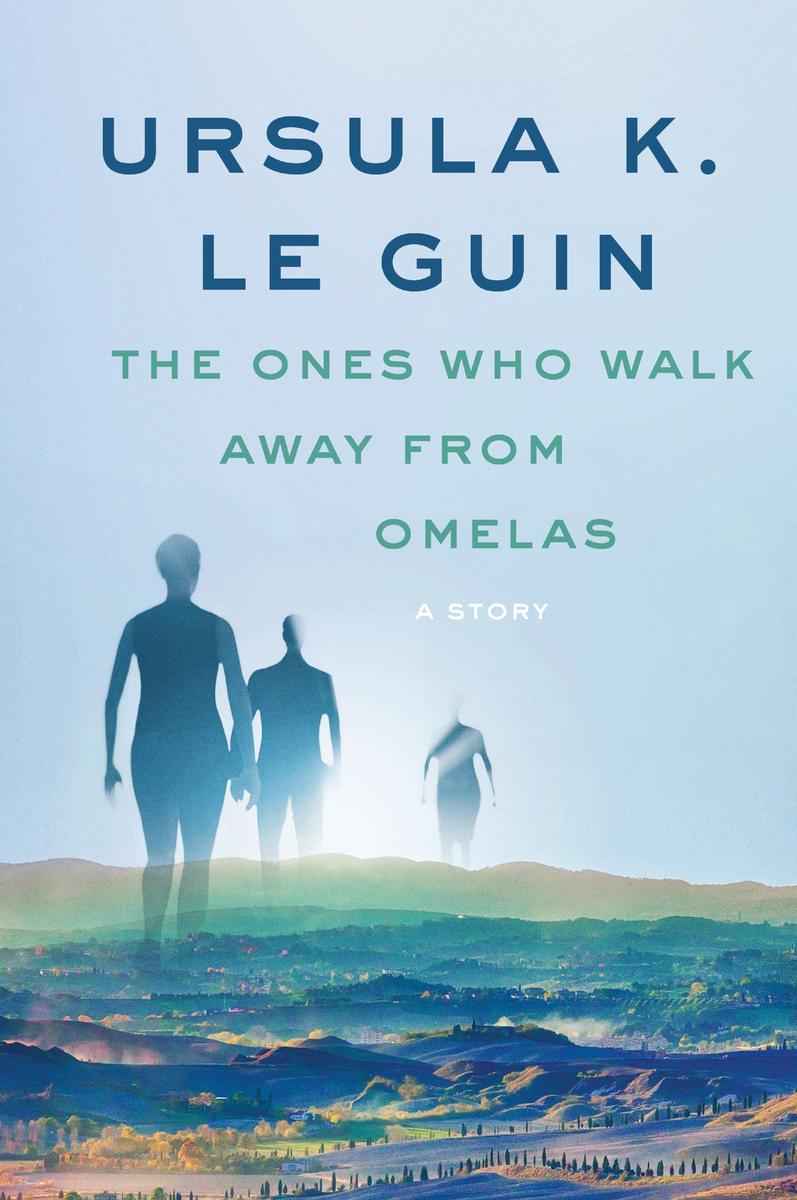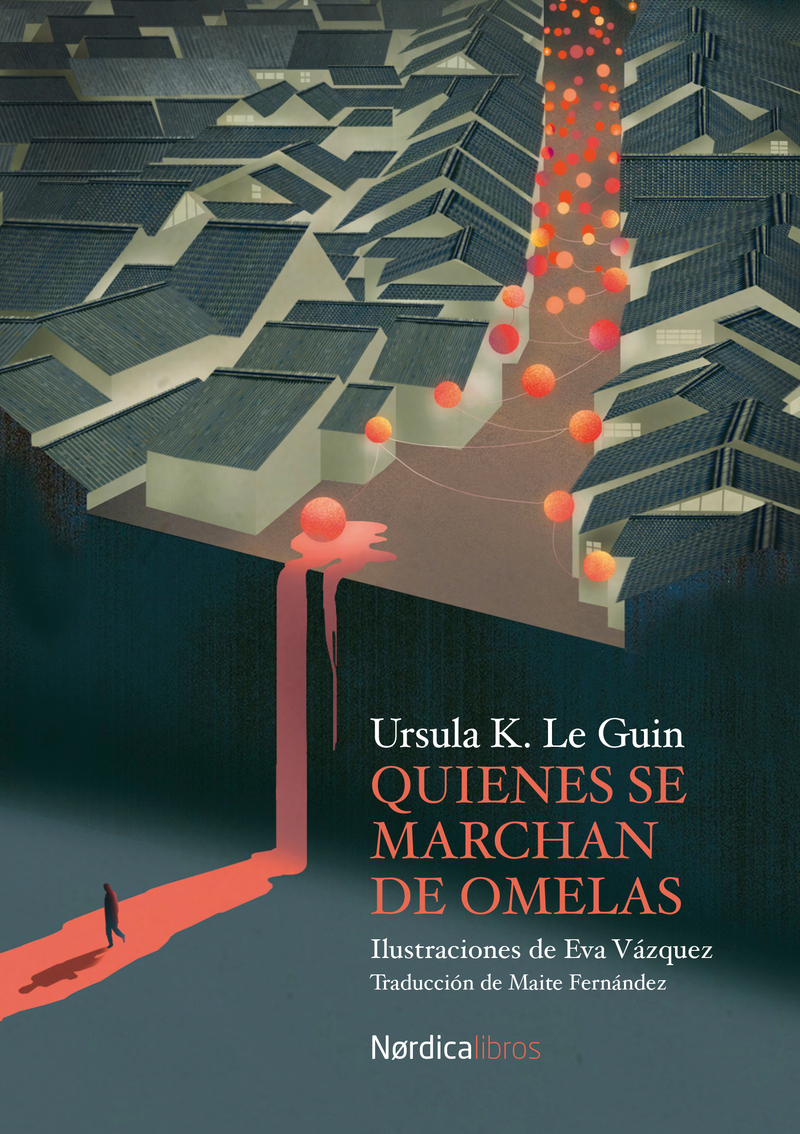
Le Guin, Ursula The Ones Who Walk Away from Omelas
The recipient of numerous literary prizes, including the National Book Award, the Kafka Award, and the Pushcart Prize, Ursula K. Le Guin is renowned for her spare, elegant prose, rich characterization, and diverse worlds. "The Ones Who Walk Away from Omelas" is one of her best-known stories. Winner of the 1974 Hugo Award for Best Short Story

Analysis of Ursula K. Le Guin’s The Ones Who Walk Away from Omelas Literary Theory and Criticism
Happiness and Suffering. "The Ones Who Walk Away from Omelas" posits that there can be no happiness without suffering. Even in her imagined city of perfect happiness, LeGuin insists that one child must suffer extreme neglect and torture so the other citizens may experience joy. The fundamental condition of life in Omelas is that, in order.

Author Ursula Le Guin taught us how to walk away from Omelas
Full Plot Summary. The story begins with a narrator's description of the Festival of Summer in the city of Omelas, a town by the sea. The atmosphere is festive and reverent, with bells ringing out and the boats in the harbor displaying hung flags. The people of Omelas parade happily through the streets of the beautiful city as swallows fly.

Reading "The Ones Who Walk Away From Omelas" by Ursula K. Le Guin YouTube
By Dr Oliver Tearle (Loughborough University) 'The Ones Who Walk Away from Omelas' is one of the few short stories of the last half-century or so which can truly be called a modern myth. Indeed, Ursula K. Le Guin (1929-2018), the story's author, called her 1973 tale a 'psychomyth', inspired by a passage she encountered in the work of.

"Los que se van de Omelas" Ursula K. Le Guin Libros que desesperan Catálogo Bolivia
Le Guin's horrifying tale "The Ones Who Walk Away From Omelas" begins with a seemingly happy occasion: it is the Festival of Summer and people are enjoying the beautiful weather and the festivities.

The Ones Who Walk Away From Omelas by Ursula K. Le Guin An Analogy for Antinatalism
By Dr Oliver Tearle (Loughborough University) Writers can get ideas from the strangest of places. Omelas, the distinctive-sounding but entirely fictional city in Ursula K. Le Guin's 1973 short story 'The Ones Who Walk Away from Omelas', came from her reading a road sign for Salem, Oregon, ('Salem, O.') in her car's rear-view mirror.
/2014-national-book-awards-459262466-5a960e45642dca0037ad022a.jpg)
Perspectiva de 'Los que se alejan de Omelas' por Le Guin
Thanks for exploring this SuperSummary Study Guide of "The Ones Who Walk Away from Omelas" by Ursula K. Le Guin. A modern alternative to SparkNotes and CliffsNotes, SuperSummary offers high-quality Study Guides with detailed chapter summaries and analysis of major themes, characters, and more.

El dilema de Omelas de Ursula K. Le Guin Carlos J. Eguren
Le Guin has noted, that she noticed a sign reading Omelas, in her rear-view mirror, as she drove away from Salem, Oregon. Through this linguistic reversal, she evokes the notorious colonial New England town where 14 women deemed "witches" were executed to preserve the "public good" between 1692-1693.

LOS QUE SE ALEJAN DE OMELAS URSULA K. LE GUIN AUDIOLIBRO YouTube
Ursula K. Le Guin 's short story "The Ones Who Walk Away from Omelas," which was first published in 1973, then collected in The Wind's Twelve Quarters (1975), has appeared since then in multiple anthologies. The story is an allegory about a utopian society, which invites readers to decide what the moral of the story should be.

The Ones Who Walk Away From Omelas Ursula K. Le Guin
1980. " The Ones Who Walk Away from Omelas " / ˈoʊməˌlɑːs / [1] is a 1973 short work of philosophical fiction by American writer Ursula K. Le Guin. With deliberately both vague and vivid descriptions, the narrator depicts a summer festival in the utopian city of Omelas, whose prosperity depends on the perpetual misery of a single child.

The Ones Who Walk Away from Omelas by Ursula K. Le Guin
Finally, Le Guin examines the moral responsibility of writers and readers by composing a story in which the narrator tries to entice the reader into taking part in the creation of Omelas.

QUIENES SE MARCHAN DE OMELAS Ursula K. Le Guin Bartleby and Co.
Le Guin's tale is an allegory, and the ritual in Omelas whereby children of a certain age are brought to view the suffering child is its most potent theme. In Omelas, children are taken to see the suffering child when they are between eight and twelve years old.

Book Review The Ones Who Walk Away From Omelas by Ursula K. Le Guin Plus a Bonus Author
Le Guin wrote and published "Omelas" in the early 1970s, on the heels of the Civil Rights Movement and in the later years of the Vietnam War. As the bright-eyed radicalism and optimism of the '60s counterculture movement faded (along with its hopes for political revolution), many Americans found themselves searching for answers to some of.

Lectura de "Los que se marchan de Omelas" de Úrsula K. Le Guin Reto de lectura 2021 YouTube
Updated on October 27, 2019. "The Ones Who Walk Away from Omelas" is a short story by American writer Ursula K. Le Guin. It won the 1974 Hugo Award for Best Short Story, which is given annually for a science fiction or fantasy story. This particular work of Le Guin's appears in her 1975 collection, "The Wind's Twelve Quarters," and it has been.

Aqueles que se Afastam de Omelas Ursula Le Guin Resenha
Microsoft Word - omelas.doc. The Ones Who Walk Away From Omelas. From The Wind's Twelve Quarters: Short Stories by Ursula Le Guin. With a clamor of bells that set the swallows soaring, the Festival of Summer came to the city Omelas, bright-towered by the sea. The rigging of the boats in harbor sparkled with flags.

Le guin the ones who walk away from omelas scnaxre
They weren't anything new in 1973 when Ursula K. Le Guin's 'The Ones Who Walk Away from Omelas' was first published. Le Guin actually credits American Philosopher, William James and his work 'The moral philosopher and the Moral Life' with the inspiration for the story; her work is a variation on a theme as it were.